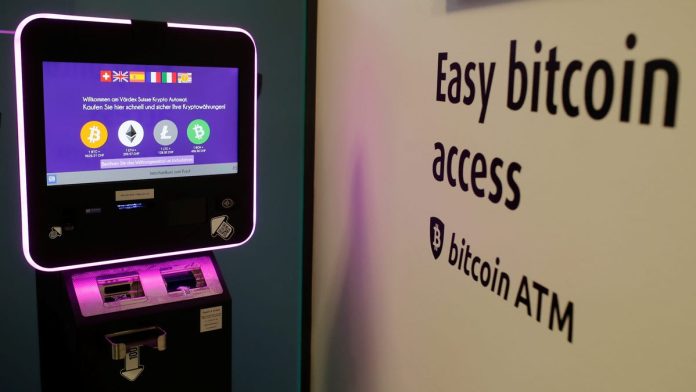When the Central Bank of Nigeria order was issued banning banks from allowing cryptocurrency transactions aired on February 5, 2021the Nigerian naira was exchanged for 381 naira against the dollar. One year later, the official exchange rate is N416 and averages N560 on the streets of Lagos.
Last October, a report on cryptocurrency adoption across 154 countries it moved Nigeria into sixth place, part of a wave that saw 1,200% growth (by value) in cryptocurrency trading in Africa. This increase was driven by peer-to-peer transactions on platforms such as Paxful and LocalBitcoinsand on WhatsApp and Telegram.
In other words, the naira has become weaker and more Nigerians use crypto now than before the ban.
Cryptocurrency exchanges have adjusted to the new reality in different ways. Patricia, an “Africa-focused integrated alternative payment and e-commerce company facilitating easy use of digital currencies” moves its headquarters to Estonia, a crypto paradise. Buycoins, which allows trading in African currencies, began advertising on large billboards in Lagos. Binance, the world’s largest cryptocurrency exchange by volume, occupied spaces on electronic billboards in the recently concluded Africa Cup of Nations.
Will CBN ever change its aversion to what these companies sell? Quartz spoke with Owenize Odia, Nigerian country manager for cryptocurrency exchange Luno, to get an insight into what it would take for crypto to become normalized in the country. The interview has been edited for clarity and length.
What kind of users have you had in the last year since the ban?
The ban somewhat affected our transactions because before the ban many people were doing fiat on and off the ramp: buying crypto with the naira or selling and withdrawing with the naira. But many Nigerians found a way to transact without the fiat tranche.
What was the other way they found?
Several providers enabled peer-to-peer exchanges. What we have done recently is launch coupons that customers can buy, convert to naira and deposit into their wallets to buy cryptocurrency. In order to withdraw, they also have to buy a coupon that charges with their bank account.
Going back before the ban, what were people using cryptocurrencies for?
First of all, it was about trade; customers bought at lower prices to sell at a higher price. But we had people using it for micropayments. As Nigerians, we know that many international merchants reject transactions that originate from Nigeria and some other African countries, but paying with cryptocurrency has become an option for some merchants. People also bought cryptocurrencies to diversify their portfolios and hold them until they appreciate. Luno, for example, has a savings option that allows users to earn 2% interest on their crypto.
Countries are now exploring central bank digital currencies (CBDCs) as a counter to crypto, but are they a threat to crypto?
I do not see CBDC as a threat but as a welcome development because there are more eyes open to the digital economy, particularly through blockchain technology. I think that he eNaira, for example, can coexist with cryptocurrencies. Even with the rise of cryptocurrencies, people were still using fiat currencies, so with eNaira I want a situation where it can be used alongside cryptocurrencies.
He is being altruistic and optimistic about it, but the governor of the Nigerian central bank does not want such coexistence.
They have their concerns around transparency and consumer protection. What we need to do is more education for stakeholders on what cryptocurrencies can bring. And this is necessary because, to be honest, cryptocurrencies cannot be stopped.
Why?
Because it’s like trying to control the internet. It can not be done. Cryptocurrency use cases are also increasing by day, and countries are starting to officially adopt it. ranked on google Nigerian first in bitcoin searches even after the ban. So the focus needs to be on consumer protection, and one way to ensure that is to allow only licensed providers to operate, in the same way that only a few companies can issue bank accounts.
Does that mean you are in favor of regulation?
Yes, and we act as if we are already regulated. Clients are required to provide KYC details to onboard and we carry out enhanced due diligence to ensure we don’t have underworld people signing up to enter the crypto space. So yes, regulation will bring transparency, it will protect consumers and businesses, and it will bring clarity to the economy.
Do you currently operate under a license in Nigeria?
We do not have a license at this time, but we are registered with the Nigerian Financial Intelligence Unit [the central bank’s anti-money laundering unit] and report suspicious transactions to you. We self-regulate so that when regulation comes, we have checked all the boxes.
We are looking for a collaborative approach, a situation where we sit down with the regulators and they list their demands. Because the way back for crypto in Nigeria is regulation. As much as crypto cannot be stopped, the ban has led people to make clandestine transactions on WhatsApp and Telegram. That is where the underworld takes advantage to carry out scams. With CBN regulation, only licensed providers will operate, cutting out scammers. In the end, it is about consumer protection.
Finally, if the status quo remains a year from now, is that a good or bad thing for Luno?
The CBN knows that people are still transacting with cryptocurrencies.
So you are indifferent?
No, I’m worried, but I’m sure that cryptocurrencies are here to stay. That’s the truth.
An earlier version of this article said that Luno enabled peer-to-peer trading. The company did not.
Sign up to Quartz Africa’s weekly roundup here to get news and analysis on business, technology and innovation in Africa delivered to your inbox.







